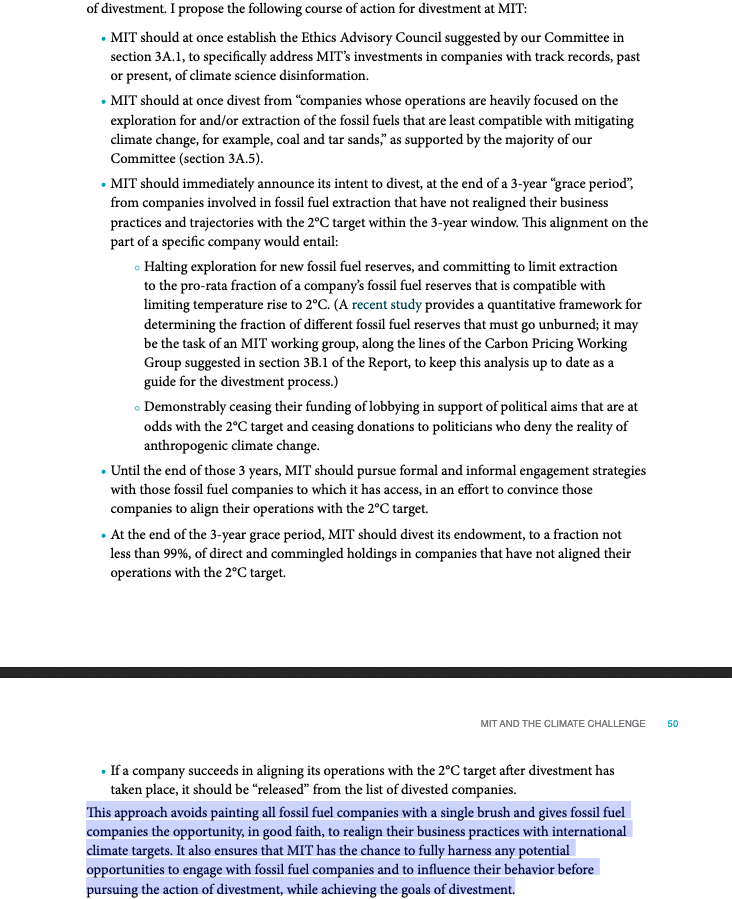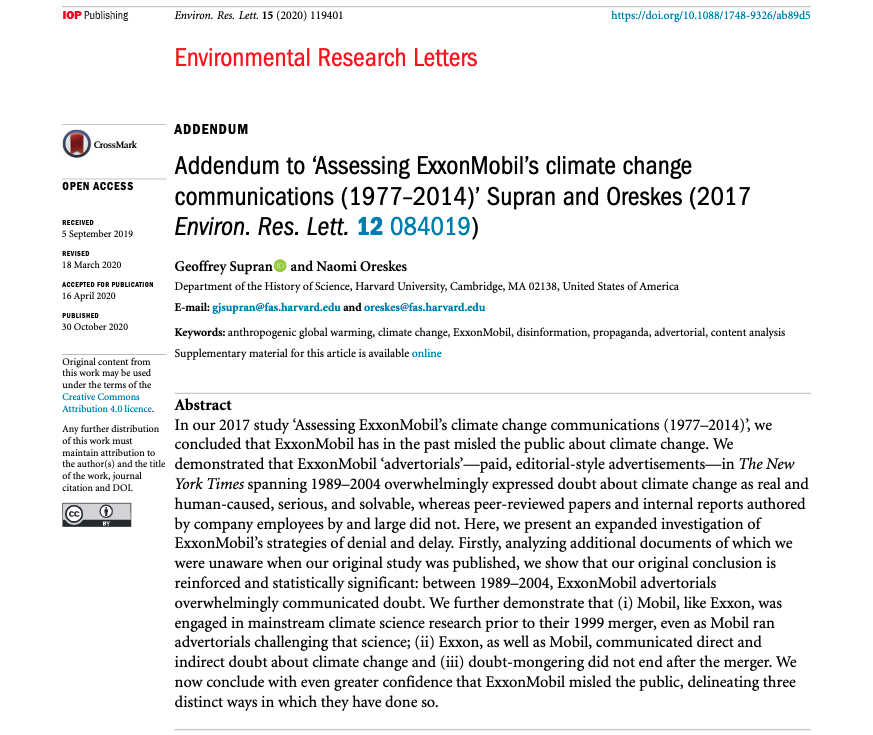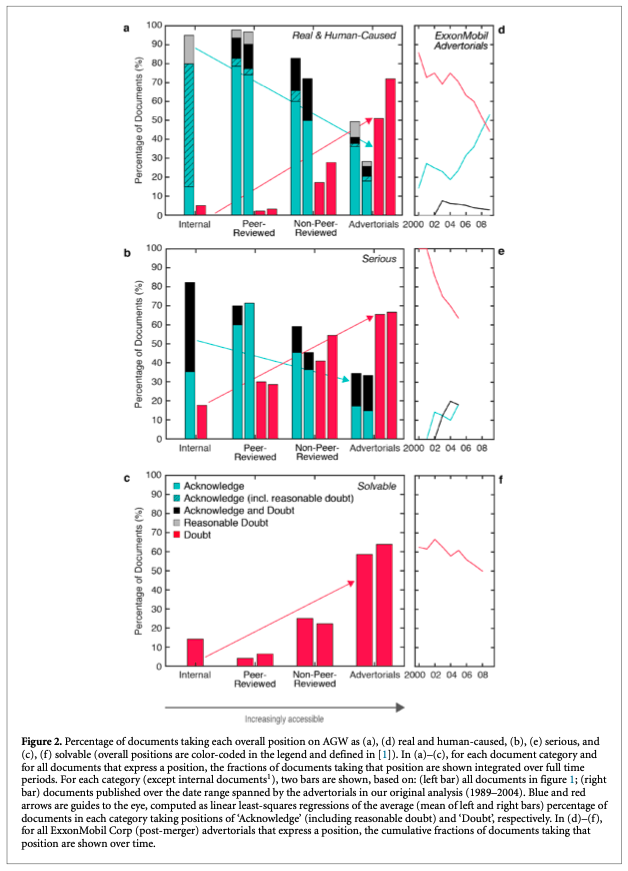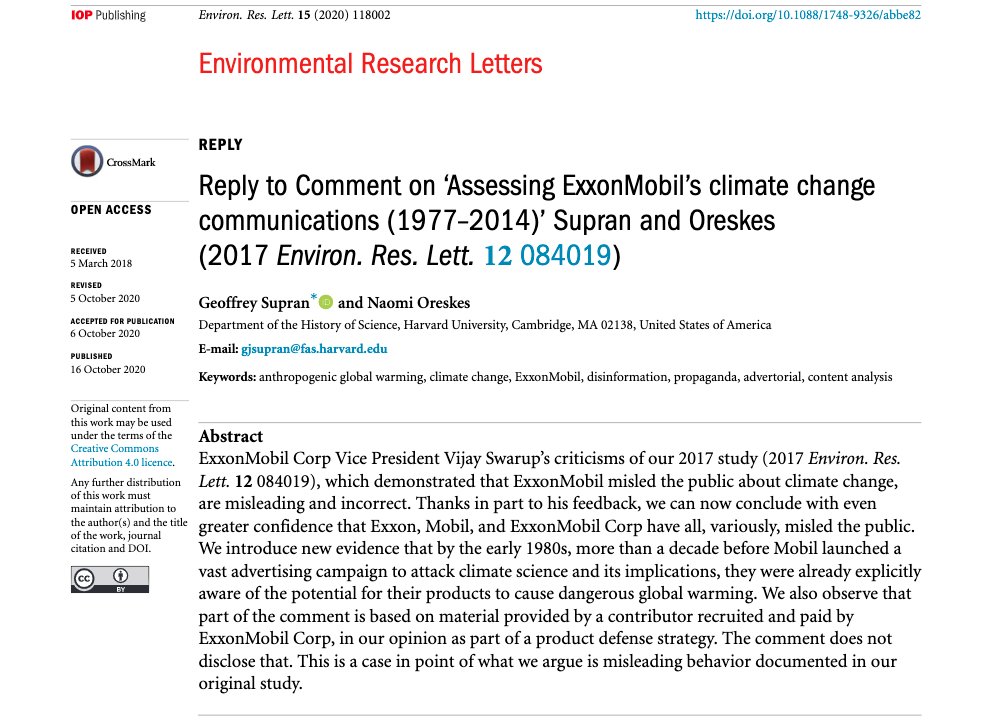
For those claiming yesterday's (genuinely brilliant) Exxon/Chevron shareholder climate victories are an argument against fossil fuel divestment, remember that shareholder engagement with Big Oil achieved precisely nothing for 25 years. 1/n
insideclimatenews.org/news/16112015/…
insideclimatenews.org/news/16112015/…
2/n: Then divestment came along. As did #KeepItInTheGround & #Blockadia. As did grassroots organizing @350, @sunrisemvmt, @ExtinctionR, @GretaThunberg @Fridays4future et al. As did a collapsing climate & shifting energy econ. As did #ExxonKnew journalism.blogs.scientificamerican.com/observations/t…
3/n: (@_aploy and I wrote about those dynamics in @sciam ⬆️.)
Only after all that - i.e. now - have shareholders made progress. This isn't an argument against shareholder activism per se; indeed, divestment campaigns generally propose an explicit "grace period" for engagement.
Only after all that - i.e. now - have shareholders made progress. This isn't an argument against shareholder activism per se; indeed, divestment campaigns generally propose an explicit "grace period" for engagement.
4/n: At @MIT, for example, we proposed a 5 year, good-faith engagement window in 2013, followed by divestment from firms failing to align their operations with 2C.
Now, almost a decade later, to my knowledge, MIT has still neither divested nor engaged.
sustainability.mit.edu/sites/default/…
Now, almost a decade later, to my knowledge, MIT has still neither divested nor engaged.
sustainability.mit.edu/sites/default/…

5/n: What I am suggesting is that *unconditional* engagement has been toothless and scientifically misguided. Only the threat of divestment and other activist/political/economic repercussions have given it some bite.
We need both/and, not either/or.
We need both/and, not either/or.
• • •
Missing some Tweet in this thread? You can try to
force a refresh











